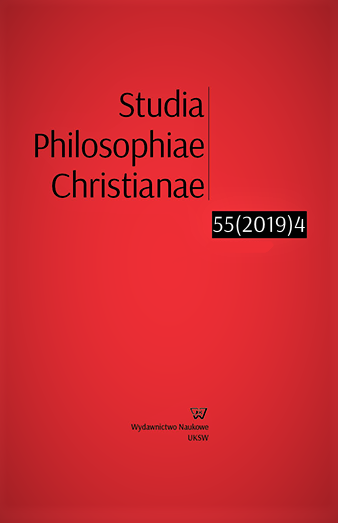Zapomnienie bycia jako zagrożenie bycia według Jean-Yves Lacoste’a
Oblivion of being as danger to being according to Jean-Yves Lacoste
Author(s): Przemysław ZgóreckiSubject(s): Contemporary Philosophy, Philosophy of Religion, Phenomenology, Hermeneutics
Published by: Wydawnictwo Naukowe Uniwersytetu Kardynała Stefana Wyszyńskiego w Warszawie
Keywords: being; French phenomenology; hermeneutics of being; hermeneutics of facticity; hermeneutics of liturgy; philosophy of religion;
Summary/Abstract: This paper argues that, according to Jean-Yves Lacoste, oblivion of being is danger to being. Although the issue of the oblivion of being appears in his early works, it was only in Présence et parousie that he fully developed his view in the context of the possibility of more than existence. Pointing out the phenomena which seem to be aberrations with respect to being-in-the-world, he concludes that there is an excess of being. This paper contends that the excess of being with respect to the world shows that there is nothing in the world that could contradict the possibility of being-towards-God. In Être en danger, Jean-Yves Lacoste develops the concept of the oblivion of being as being-in-danger. Contrary to Lacoste, this paper suggests that oblivion is not a threat to being. Instead, it shows that being is rather unavailable than available. The excess of the unavailable with respect to the available in being shows that there is nothing in being which could contradict the possibility of the fullness of being. Ultimately, the author argues that memory of being opens the possibility of the definitive or eschatological understanding of being. Being is the will of being. It is not the will of being to a certain extent, hence the will of being partially. Therefore, the possibility of the fullness of being is intrinsic to being and can be considered a principle which fulfils itself, providing being with a self-understanding that is definitive, hence eschatological, rather than provisional. Because God is the fullness of being, being in itself is the will of being-towards-God rather than the will of being-in-the-world.
Journal: Studia Philosophiae Christianae
- Issue Year: 55/2019
- Issue No: 4
- Page Range: 115-136
- Page Count: 22
- Language: Polish

